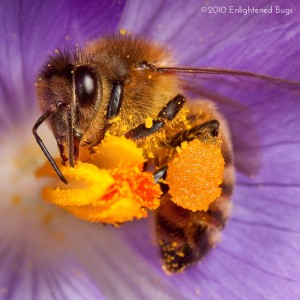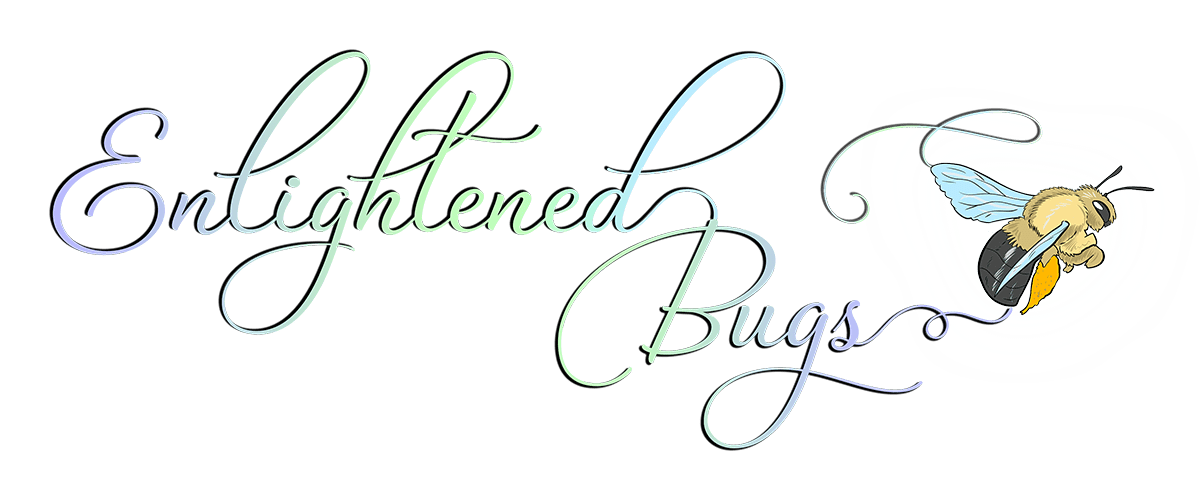 It’s a step in the right direction, though it’s a long path ahead yet (update: see Greenpeace EU Media Briefing). Our poor bee populations (both managed and wild) are particularly sensitive to the toxins we’ve been spreading throughout our environment. Three pesticides (thiamethoxam, clothianidin, and imidacloprid), all in the class of neonicotinoids, are clearly implicated by a growing body of evidence in colony collapse disorder and overall declines in pollinator health. It’s not surprising this stuff is so toxic when you think about it… we’re talking about a massive dose of nicotine-like substances here, which cause all the typical nerve-damage you’d expect in the ill-fated insects that consume these toxins. These are systemic pesticides, so the toxins are contained throughout the host plants (leaves, stems, seeds, flowers, etc.)
It’s a step in the right direction, though it’s a long path ahead yet (update: see Greenpeace EU Media Briefing). Our poor bee populations (both managed and wild) are particularly sensitive to the toxins we’ve been spreading throughout our environment. Three pesticides (thiamethoxam, clothianidin, and imidacloprid), all in the class of neonicotinoids, are clearly implicated by a growing body of evidence in colony collapse disorder and overall declines in pollinator health. It’s not surprising this stuff is so toxic when you think about it… we’re talking about a massive dose of nicotine-like substances here, which cause all the typical nerve-damage you’d expect in the ill-fated insects that consume these toxins. These are systemic pesticides, so the toxins are contained throughout the host plants (leaves, stems, seeds, flowers, etc.)
There are so many ways to practice sustainable crop growth, such as crop rotation and making partners of beneficial insects. Our lack of foresight as a group (all of humanity here), our complacency in the face of such damage and destruction, which is practiced by our governments and powerful pesticide company lobbyists… all this must come to an end, before we poison this poor planet to such an extent that the effects are irreversible. There’s a place in China where toxins have reached such high levels that all the pollinators have disappeared. All the village, young and old, now spends considerable time hand-pollinating all their crops.
And so this EU decision is just one small step in the right direction. For more about what you can do to help pollinators, see my site Save Bees! Educate those around you about the importance of living in synergy with our environment and our buzzy little friends.
